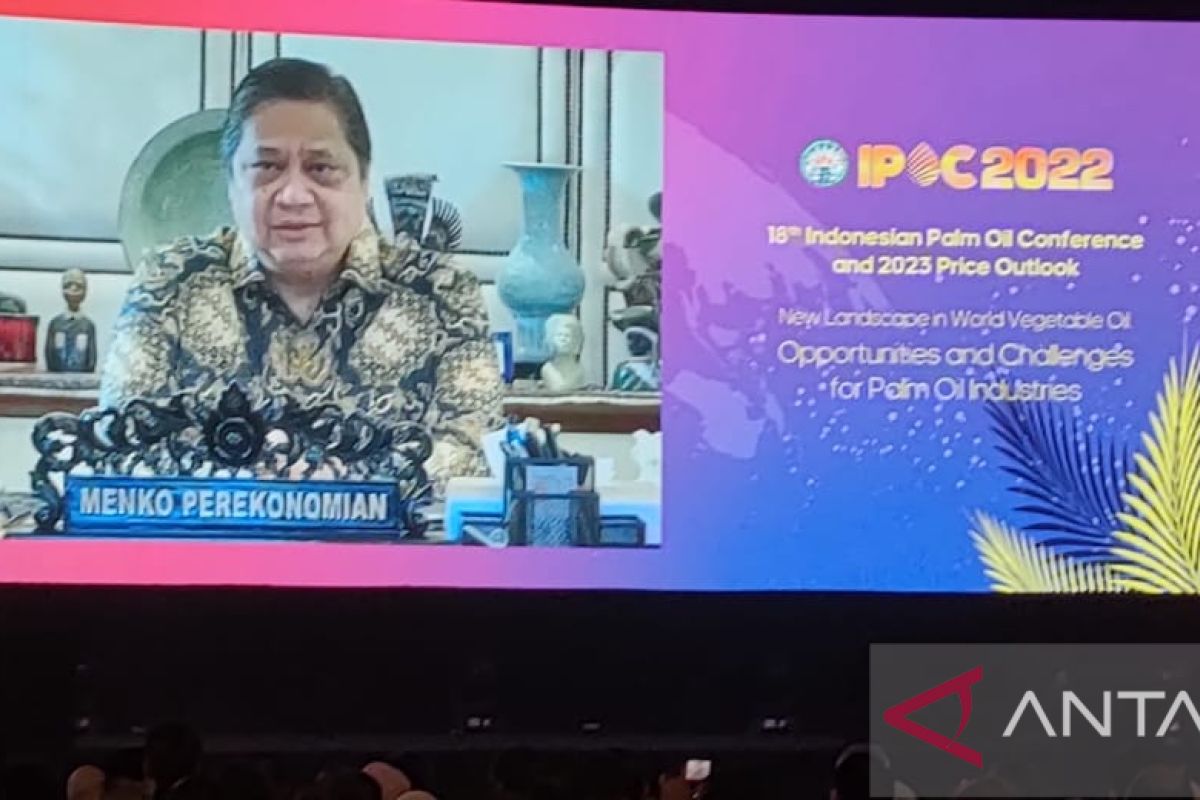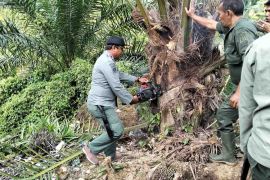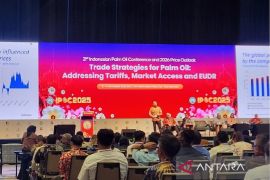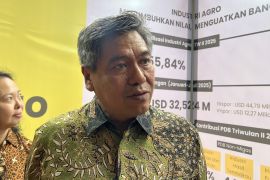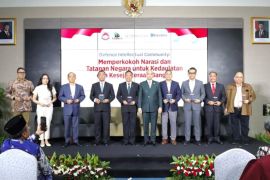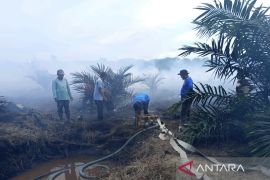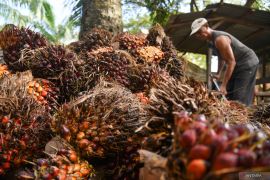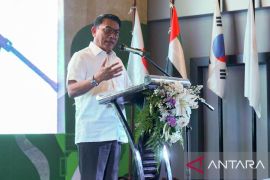Indonesia is capable of producing 40 percent of the world's total vegetable oil productionNusa Dua, Bali (ANTARA) - Coordinating Minister for Economic Affairs Airlangga Hartarto stated that the palm oil industry will contribute to sustainability of economic recovery.
"(This will) not only help the economic sector but also the social and environmental aspects," he stated at the 2022 Indonesia Palm Oil Conference (IPOC) in Nusa Dua, Bali, on Thursday.
The 18th IPOC has been held offline on November 3-4 after it was organized in online mode for two consecutive years due to the COVID-19 pandemic.
According to Hartarto, the contribution of palm oil cannot be separated from the national economy, especially since Indonesia controls some 58 percent of the world's palm oil market and uses no less than 10 percent of the world's vegetable oil land.
"Indonesia is capable of producing 40 percent of the world's total vegetable oil production," he stated.
He cited a research that it only requires 0.3 hectares of land to produce a ton of palm oil, while an area of 1.3 hectares is needed for rapeseed oil.
Likewise, 1.5 hectares and 2.2 hectares of land would be respectively needed to produce a ton of sunflower oil and soybean oil.
This means that palm oil has higher productivity as compared to other vegetable oils.
Hence, he said, with the effective application of regulations, the palm oil industry will contribute to sustainability of the national economic recovery.
Several regulations related to the palm oil industry include Presidential Instruction No. 6 of 2019 on the National Action Plan for Sustainable Palm Oil Plantations for 2019-2024 that becomes a roadmap for the government and related stakeholders for social balance, economic development, and environmental conservation.
Presidential Regulation No. 44 of 2020 on Indonesian Sustainable Palm Oil Plantation Certification System aims to ensure and develop the management of palm oil plantations according to the Indonesian Sustainable Palm Oil (ISPO) criteria in order to strengthen competitiveness in domestic and international markets and strengthen efforts to accelerate the reduction of greenhouse gas emissions.
Meanwhile, General Chairperson of the Indonesian Palm Oil Association (Gapki) Joko Supriyono stated that national palm oil industry players are optimistic about facing opportunities in 2023.
"With supportive government policies, we believe the national palm oil industry can grow steadily in the midst of market and economic dynamics," he noted.
Head of the Fiscal Division of Gapki Bambang Aria Wisena said that in future, the palm oil industry would need a policy that supports sustainability of the industry as the backbone of the national economy.
"Until the next few decades, Indonesia's economy will be in the palm oil sector that will contribute to economic recovery," he stated.
Related news: Asia, Middle East alternative markets for palm oil export: Economist
Related news: KJRI Kuching provides support for migrant workers' legality in Sarawak
Translator: Subagyo, Sri Haryati
Editor: Rahmad Nasution
Copyright © ANTARA 2022
